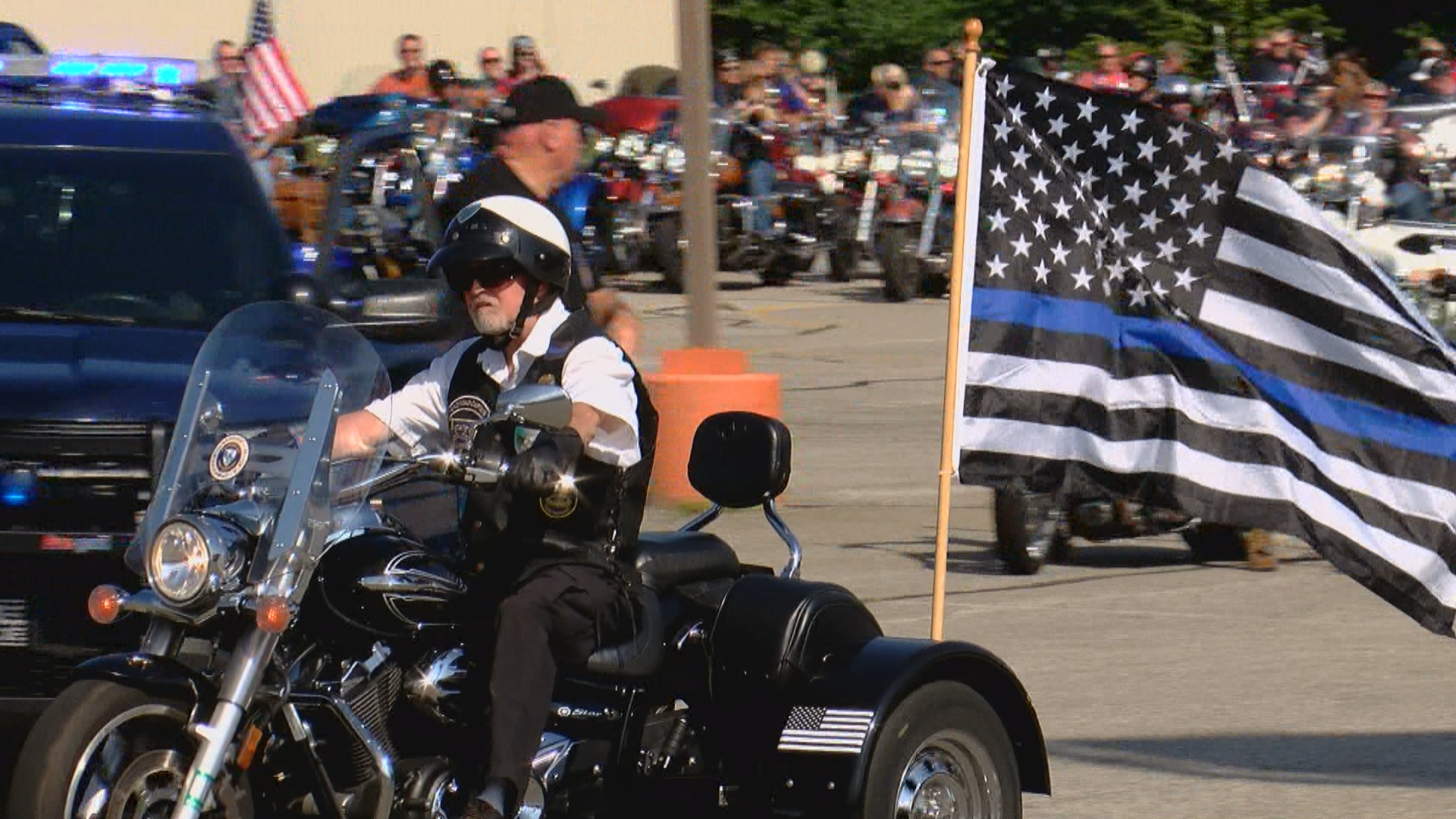After police filed a lawsuit over Springfield Township’s ban on the thin blue line American flag symbol, the township has agreed to an injunction. As a result, the ban will not take effect.
The Fraternal Order of Police Pennsylvania Lodge, the Springfield Township Police Benevolent Association, and three officers filed the suit against the township and its board of commissioners individually.
The plaintiffs asked a judge for an emergency temporary restraining order, followed by an injunction, so they can keep the flag. Officers feared retaliation, including losing their jobs, if they did not comply with the resolution. Federal Judge Karen Marston issued an order on Wednesday after both sides agreed to the injunction.
“We are very pleased,” said Wally Zimolong, attorney for the police. “The resolution is blatantly unconstitutional as re-enforced by decades of Supreme Court precedent. But it is unfortunate that it took a federal lawsuit to halt its implementation.”
On Jan. 11, the board voted 5-2 to ban the display of the flag on township property, from police uniforms, or on their bodies (tattoos) while on duty, and on any township property in the Montgomery County community.
The PBA uses the thin blue line American flag as its logo.
While the thin blue line flag is widely recognized as a symbol of support for police, especially for fallen officers, some say it symbolizes hate or oppression. And some white supremacist groups have flown the flag as well.
Residents espoused both sides of the issue during discussions at township meetings, but those who opposed the flag carried the day.
In the lawsuit, the police claimed the township’s ban is a violation of their First Amendment right to free speech and also their Fourteenth Amendment right to equal protection under the law.
The ban is” blatantly unconstitutional,” the suit said. “It defiles bedrock First Amendment principles reiterated by a legion of Supreme Court cases.”
“These First Amendment protections are not diluted for speech that some might find offensive, distasteful, or controversial,” the suit said. And governments, including municipal governments, cannot ban speech.
“The Thin Blue Line flag is clearly entitled to First Amendment protection,” the suit argues. “Flags have been used to convey messages from almost the beginning of civilization. The Thin Blue Line flag is no different. Less than a year ago, the Third Circuit recognized that it carries and expresses a political, social, cultural, and symbolic meaning (in a case out of Boston).”
“The Thin Blue Line flag has come to represent a show of support for and solidarity with members of law enforcement, which includes police officers. Through a resolution at its national conference, the Fraternal Order of Police have affirmed its support for the use of the Thin Blue Line flag by law enforcement and the communities they protect,” according to the suit.
The Pennsylvania FOP “believes that the Thin Blue Line flag represents the preservation of the rule of law, the protection of peace and freedom, the sacrifice of fallen law enforcement officers and the dedication of law enforcement officers.”
The Springfield PBA also believes that the Thin Blue Line flag represents the same things.
Springfield PBA displays this logo on its website and “it displays the logo at fundraisers, events supporting Springfield PBA, and merchandise.”
“Moreover, its members display, depict, install, affix, or use the Thin Blue Line flag on pins, buttons, articles of clothing, and items affixed to personal belongings, such as bumper stickers and patches. Many members of the Springfield PBA wear a rubber replacement wedding ring that displays and depicts the Thin Blue Line flag,” the suit said.
Also, “defendants do not hide that at least one of their motivations for banning the Thin Blue Line flag is because it “represent[s] opposition to racial justice movements, including the Black Lives Matter cause.”
“That certain members of the public may view the Thin Blue Line flag negatively scarcely helps the constitutionality of the (Springfield) resolution. If there is a bedrock principle underlying the First Amendment, it is that the government may not prohibit the expression of an idea simply because society finds the idea itself offensive or disagreeable,” the suit notes.
Asked to comment, Commissioners President James Lee declined, instead referring to the video of the BOC meeting where the resolution was adopted.
Please follow DVJournal on social media: Twitter@DVJournal or Facebook.com/DelawareValleyJournal

